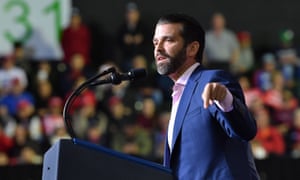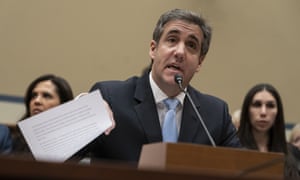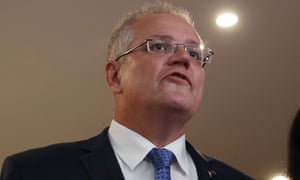Analysis
With the election looming, the Government is dishing up a hurried
smorgasbord of fresh and reheated policies to bolster its climate
credentials.
Two headline menu items are distinctly familiar: the $200-million-a-year Climate Solutions Fund is essentially an extension of Tony Abbott's Emissions Reduction Fund, while Snowy 2.0 was Malcolm Turnbull's pet project.
An electric vehicle plan and an interconnector between Tasmania and the mainland have also been thrown on the table this week.
The Government expects its newly rebadged Climate Solutions Fund to do the bulk of the heavy lifting, but critics say the only way it will see us meet our Paris commitments is with some tricky accounting.
It's difficult to gauge exactly how successful the ERF has been in the past, because it deals with hypothetical emissions which in some cases wouldn't have occurred anyway.
Operators of a landfill site, for example, may be paid to capture and burn methane emissions, converting them to energy and less harmful CO2 emissions.
But many of these are dubbed "anyway projects". As in, they would have happened regardless of ERF funding, according to Tim Baxter from the Climate and Energy College at the University of Melbourne.
"They're very commercially successful partially because they get paid the price of electricity under their connection to the grid, they get paid in renewable energy certificates, and they get paid from the Emissions Reduction Fund."
"For most [permit buyback] projects, there's about five years between when the land-clearing permit was issued and when they registered for the Emissions Reduction Fund," Mr Baxter said.
"During that time, the landholder hasn't cleared their land. So you've got to ask the question, were [they] really planning to clear their land or had they changed their plans in the intervening years?"
The scheme also includes carbon sequestration through tree planting, and carbon reduction through projects to reduce intense bushfire.
Both of these activities are extremely problematic to calculate exact carbon dioxide reduction figures for.
In short, it's very difficult to know what reductions taxpayers are getting for their money.
But Prime Minister Scott Morrison, who said the Climate Solutions Fund goes beyond Tony Abbott's Emissions Reduction Fund to encompass a range of other projects, told the ABC the original incarnation was a success.
"It's responsible for about 200 million tonnes of abatement, and it was always our intention that we would need to extend that out to ensure we met our 2030 [Paris] targets, which we will," he said on Monday.
"The 2020 [Kyoto] targets, we will meet comfortably by around 367 million tonnes in addition to what our commitments [were]."
And while the Government focusses on a reduction in per capita emissions, our total greenhouse gas emissions have continued to rise every year since 2013.
There will undoubtedly be projects supported under the Climate Solutions Fund that will mitigate emissions, but whether that will be enough to offset the damage from big polluters is contentious.
Iain MacGill from the Centre for Energy and Environmental Markets at UNSW fears our Paris commitments are slipping out of reach.
On the flipside of the fund is the "safeguard mechanism".
The safeguard mechanism puts a cap or "baseline" on the amount of greenhouse gas a company or project is allowed to emit.
Last year it was revealed that 16 industrial sites breached their greenhouse gas baselines and were forced to buy millions of dollars in carbon credits.
But more than 50 industrial sites had their baseline emissions set at levels above their previously highest ever recorded peaks.
Under that scenario, their baselines would permit them to increase their emissions, contrary to the purpose of the mechanism, according to Dr MacGill.
"Our national emissions have been climbing, so the safeguard mechanism was designed to put a limit on that," he said.
"What we have seen is that it doesn't seem to be doing much so far."
A potential loophole in the Kyoto Protocol means because we exceeded our Kyoto targets, we may be able to use "Kyoto credits" from that agreement to reduce our Paris target of 26 per cent.
"Our targets for the Kyoto protocol were set way too [low], at a level that it was virtually impossible for us to have failed," Mr Baxter said.
New Zealand's climate change minister James Shaw has described the loophole as "dodgy" and said that they won't be using it.
"We would discourage any country from using it," he said at a COP24 climate change summit in December last year.
But Mr Morrison said there are very few countries in the world that can claim to have performed as well as Australia against their 2020 targets.
"New Zealand, to meet their targets, will have to buy foreign carbon credits," he said.
"Under our plan, we don't have to do that."
In a best-case scenario the Government's Climate Solutions Fund may drag us over the Paris line by 2030, with a lot of heavy lifting done by private investment in renewables.
But our commitment to a 26-28 per cent reduction of emissions under the Paris Agreement is the bare minimum we can chip in, in the global effort to keep warming below 2 degrees Celsius above pre-industrial levels.
Mention 2C warming to a climate scientist and the tone becomes very dire very quickly. It's predicted to have catastrophic consequences across the globe.
Under that scenario, the IPCC forecasts 99 per cent of the world's coral reefs will go, there will be widespread extinctions on land, the Arctic will be ice-free once a decade, and an extra 10 million people will be displaced by rising sea levels.
Limiting warming to 1.5C means 70-90 per cent of reefs would go, but terrestrial extinctions will be much fewer, and the impact from extreme weather less severe.
But limiting warming to 1.5C requires strong action to drive down emissions across the biggest polluting sectors: electricity and transport.
It means aiming for zero net emissions by around 2050.
It means actively phasing out coal, not subsidising it or passing it around parliament.
Renewable energy and electric vehicles will need significant investment. Leaders will need to be looking for every opportunity to drive down emissions more.
They will need to be willing to take political risks to push emissions down.
Mr Morrison is caught between Liberal progressives seeking stronger action on climate change, and the true unbelievers.
Meanwhile, the climate will simply respond to the amount of greenhouse gas we pump into the atmosphere. It can't be tricked by clever accounting.
Two headline menu items are distinctly familiar: the $200-million-a-year Climate Solutions Fund is essentially an extension of Tony Abbott's Emissions Reduction Fund, while Snowy 2.0 was Malcolm Turnbull's pet project.
An electric vehicle plan and an interconnector between Tasmania and the mainland have also been thrown on the table this week.
The Government expects its newly rebadged Climate Solutions Fund to do the bulk of the heavy lifting, but critics say the only way it will see us meet our Paris commitments is with some tricky accounting.
What sort of solutions are we talking about?
Instead of making polluting costly for polluters, through a price on greenhouse gas emissions, the scheme provides taxpayer money for projects that allow companies and individuals to pollute less.It's difficult to gauge exactly how successful the ERF has been in the past, because it deals with hypothetical emissions which in some cases wouldn't have occurred anyway.
Operators of a landfill site, for example, may be paid to capture and burn methane emissions, converting them to energy and less harmful CO2 emissions.
But many of these are dubbed "anyway projects". As in, they would have happened regardless of ERF funding, according to Tim Baxter from the Climate and Energy College at the University of Melbourne.
"They're very commercially successful partially because they get paid the price of electricity under their connection to the grid, they get paid in renewable energy certificates, and they get paid from the Emissions Reduction Fund."
Are we getting what we're paying for?
In other projects, a landholder with a permit to clear an area of forest may instead be paid to keep those trees in the ground."For most [permit buyback] projects, there's about five years between when the land-clearing permit was issued and when they registered for the Emissions Reduction Fund," Mr Baxter said.
"During that time, the landholder hasn't cleared their land. So you've got to ask the question, were [they] really planning to clear their land or had they changed their plans in the intervening years?"
The scheme also includes carbon sequestration through tree planting, and carbon reduction through projects to reduce intense bushfire.
Both of these activities are extremely problematic to calculate exact carbon dioxide reduction figures for.
In short, it's very difficult to know what reductions taxpayers are getting for their money.
But Prime Minister Scott Morrison, who said the Climate Solutions Fund goes beyond Tony Abbott's Emissions Reduction Fund to encompass a range of other projects, told the ABC the original incarnation was a success.
"It's responsible for about 200 million tonnes of abatement, and it was always our intention that we would need to extend that out to ensure we met our 2030 [Paris] targets, which we will," he said on Monday.
"The 2020 [Kyoto] targets, we will meet comfortably by around 367 million tonnes in addition to what our commitments [were]."
The graph keeps climbing
Australia's total national greenhouse gas emissions rose in 2014, the year the Emissions Reduction Fund was introduced.And while the Government focusses on a reduction in per capita emissions, our total greenhouse gas emissions have continued to rise every year since 2013.
There will undoubtedly be projects supported under the Climate Solutions Fund that will mitigate emissions, but whether that will be enough to offset the damage from big polluters is contentious.
Iain MacGill from the Centre for Energy and Environmental Markets at UNSW fears our Paris commitments are slipping out of reach.
On the flipside of the fund is the "safeguard mechanism".
The safeguard mechanism puts a cap or "baseline" on the amount of greenhouse gas a company or project is allowed to emit.
Last year it was revealed that 16 industrial sites breached their greenhouse gas baselines and were forced to buy millions of dollars in carbon credits.
But more than 50 industrial sites had their baseline emissions set at levels above their previously highest ever recorded peaks.
Under that scenario, their baselines would permit them to increase their emissions, contrary to the purpose of the mechanism, according to Dr MacGill.
"Our national emissions have been climbing, so the safeguard mechanism was designed to put a limit on that," he said.
"What we have seen is that it doesn't seem to be doing much so far."
'Dodgy' loophole won't stop warming
While Mr Morrison been repeating his mantra of meeting our Paris targets "in a canter", Mr Baxter thinks the Government will have to do some creative accounting to get us there.A potential loophole in the Kyoto Protocol means because we exceeded our Kyoto targets, we may be able to use "Kyoto credits" from that agreement to reduce our Paris target of 26 per cent.
"Our targets for the Kyoto protocol were set way too [low], at a level that it was virtually impossible for us to have failed," Mr Baxter said.
New Zealand's climate change minister James Shaw has described the loophole as "dodgy" and said that they won't be using it.
"We would discourage any country from using it," he said at a COP24 climate change summit in December last year.
But Mr Morrison said there are very few countries in the world that can claim to have performed as well as Australia against their 2020 targets.
"New Zealand, to meet their targets, will have to buy foreign carbon credits," he said.
"Under our plan, we don't have to do that."
In a best-case scenario the Government's Climate Solutions Fund may drag us over the Paris line by 2030, with a lot of heavy lifting done by private investment in renewables.
But our commitment to a 26-28 per cent reduction of emissions under the Paris Agreement is the bare minimum we can chip in, in the global effort to keep warming below 2 degrees Celsius above pre-industrial levels.
The stakes couldn't be higher
Warming of 1.5C is dangerous, but the IPCC has conceded it's about the best we can hope for.Mention 2C warming to a climate scientist and the tone becomes very dire very quickly. It's predicted to have catastrophic consequences across the globe.
Under that scenario, the IPCC forecasts 99 per cent of the world's coral reefs will go, there will be widespread extinctions on land, the Arctic will be ice-free once a decade, and an extra 10 million people will be displaced by rising sea levels.
Limiting warming to 1.5C means 70-90 per cent of reefs would go, but terrestrial extinctions will be much fewer, and the impact from extreme weather less severe.
But limiting warming to 1.5C requires strong action to drive down emissions across the biggest polluting sectors: electricity and transport.
It means aiming for zero net emissions by around 2050.
It means actively phasing out coal, not subsidising it or passing it around parliament.
Renewable energy and electric vehicles will need significant investment. Leaders will need to be looking for every opportunity to drive down emissions more.
They will need to be willing to take political risks to push emissions down.
Mr Morrison is caught between Liberal progressives seeking stronger action on climate change, and the true unbelievers.
Meanwhile, the climate will simply respond to the amount of greenhouse gas we pump into the atmosphere. It can't be tricked by clever accounting.


















